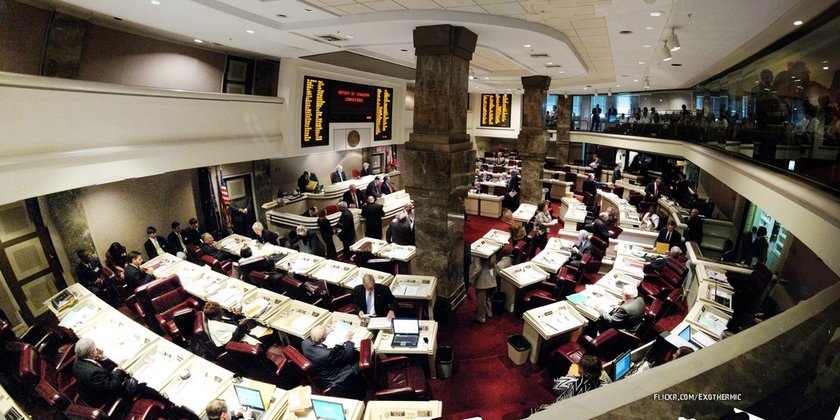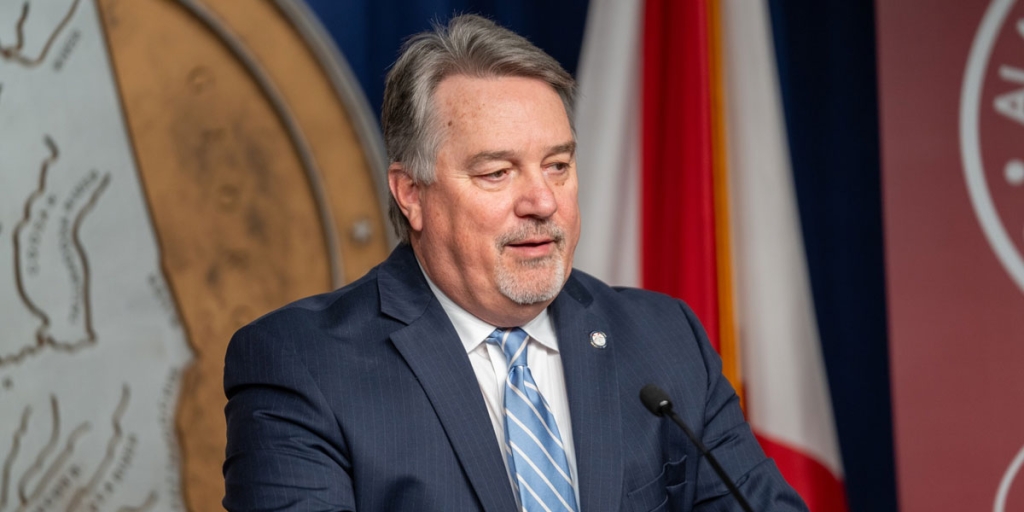
MONTGOMERY – The Alabama House of Representatives on Tuesday unanimously passed a $6.3 billion Education Trust Fund (ETF) budget that includes significant pay raises for teachers an education support personnel.
The Office of Alabama House Speaker Mike Hubbard (R-Auburn) detailed the raises in a release:
Under the House-passed budget, teachers and support personnel, such as bus drivers, lunchroom workers, and others, earning less than $75,000 a year will receive a four percent salary increase while administrators and others earning more than $75,000 will receive a two percent raise. The proposed ETF budget includes a four percent across-the-board pay raise for all community college employees. The budget also fully-funds health insurance and retirement program funding requests.
“As a result of the responsible spending practices that have been utilized since Republicans took leadership of the Legislature, this budget is able to reward teachers and support personnel with a needed pay raise that also closes the salary gap between administrators and classroom educators,” said House Education Budget Chairman Bill Poole (R – Tuscaloosa).
“This budget also includes significant increases in classroom spending for priorities like First Class Pre-K, distance learning, school technology, and Advanced Placement courses,” added Speaker Hubbard. “When coupled with the funding we are providing to make us the first state in the nation to offer wireless broadband access in each of its K-12 public school classrooms, this education budget may be considered among the best ones passed in Alabama’s history.”
Hubbard’s office also released the following “highlights” included in the budget:
· Providing funding for an additional 475 teachers in 7-12 grade classrooms, where the need is greatest.
· Increased spending for textbooks ($8 million for FY2017 and $20.8 million over the past two years combined) and transportation ($13.5 million for FY2017 and $18 million over the past two years combined).
· Expansion of Alabama’s nationally-recognized voluntary Pre-Kindergarten program, known as First Class, with an additional $14 million in funding in FY2017 and $24.3 million over the past two years combined.
· A $3.1 million increase in funding for student materials ($6.1 million over the past two years combined) to prevent teachers from pay out-of-pocket for needed classroom supplies.
· Allowing local school systems to set priorities and meet urgent needs by providing an additional $47 million in discretionary “Other Current Expense” funding.
· Providing full funding for the Public Education Employees’ Health Insurance Program (PEEHIP) with a $20 million increase that is intended to avoid premium increases.
The education budget now goes to the senate for consideration.












